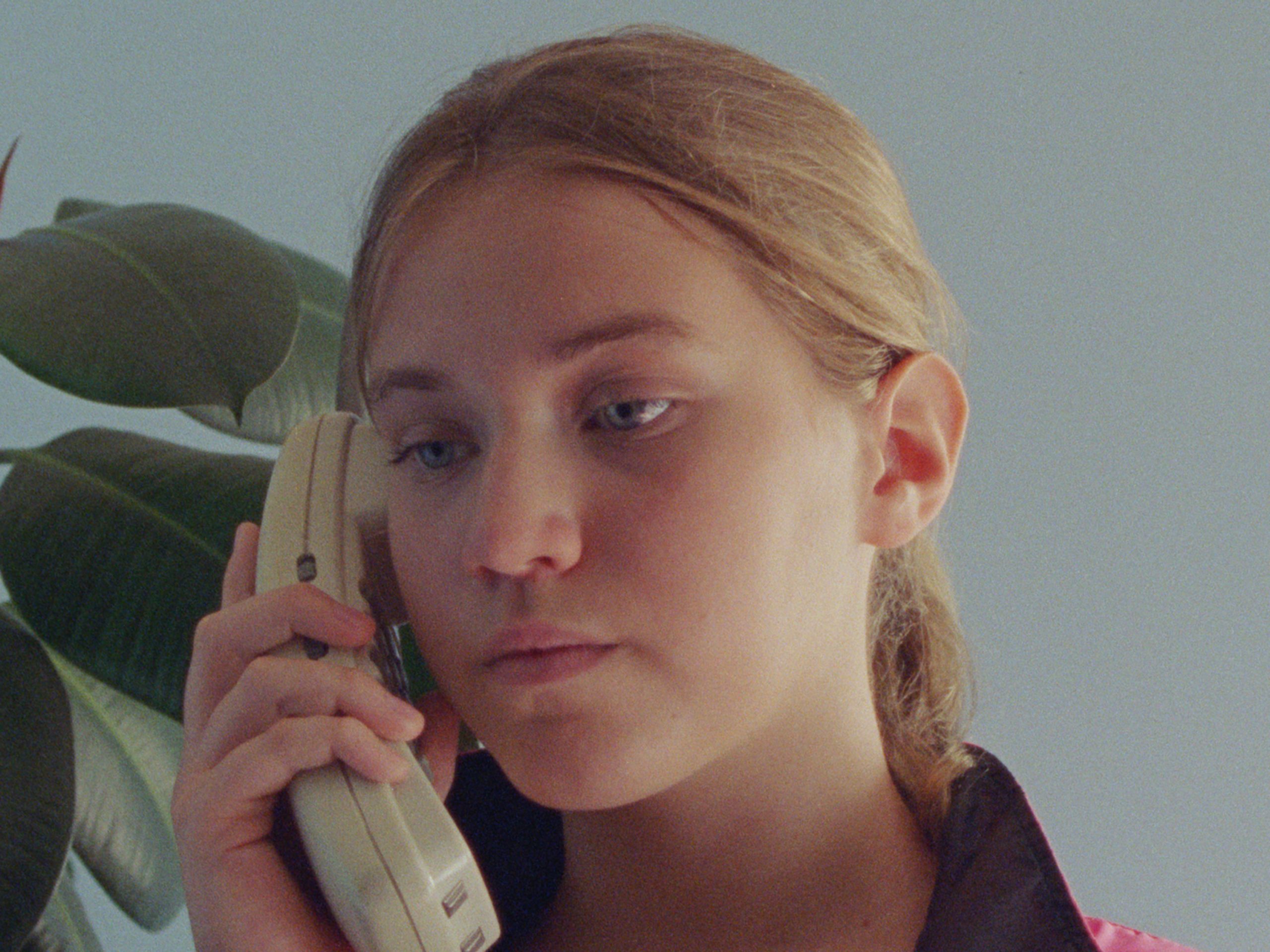
BLOG · Review: “When the Phone Rang”
Words by Agáta Götzová
When the Phone Rang is a touchingly personal piece, directed by Iva Radivojević. This mix of memoir and drama stars eleven-year-old Lana (Natalija Ilinčić) as she recalls her exiled past amidst the start of the Yugoslav Wars.
The phone rings on Friday, 10.36 AM in the year 1992, marking for Lana, the start of the conflict which broke the country apart into the many independent states we know today. This series of ethnic wars and widespread atrocities led to the deaths of over 130,000 people. Like many during that time, Lana’s parents decided to leave the country. Lana will later find that, along with her clothes, she managed to bring with her only a handful of confusing memories that are now scattered in her brain along a non-linear timeline.
The plot of the film begins with the ringing phone, revealing to Lana, and to us, that her grandfather has passed away. This film is personal from the very beginning. We are guided through Lana’s memories by a female narrator that jumps from one time to another, speaking in pasts, presents and futures. Lana picks up the phone; Lana packs her bags; Lana hangs out with her friend Olja; Lana listens to music; Lana has a painfully short phone call with her grandmother; Lana returns the porn tapes her father kept under his bed; Lana hangs out with her anarchist neighbor Vlada; Lana gets bad haircuts with Olja; Lana says goodbye to her sister. And while all this happens, we, just like Lana, never really know what exactly happens when.
From the moment the phone rings, Lana’s childhood ceases to be simple. Her youth is now juxtaposed by the restriction of freedom, access to loved ones, and the loss of memories. Here and there, the film shoots Lana’s neighbour Vlada as he mysteriously takes puffs from his cigarettes. Lana is quietly drawn to his rebelliousness. He hangs with the anarchists, he frequently jumps on the train without any purpose or
destination, and he has no regard for death, even his own. It is ominously ambiguous whether his presence represents the stages of adolescence or rather the growing atmosphere of conflict. Either or, he is right there, in Lana’s memories.
Through Vlada, Lana begins to sense that the world around her is transforming. She is growing up side by side with cultural change. When the phone rings, she begins to realize this. The film shows this tension between time and cultural change with references to both Yugoslavian and Western influences. Lana proclaims that her favourite film is the 1979 musical Hair, she then hums the melody of the film’s opening song Aquarius:
“When the moon is in the Seventh House,
And Jupiter aligns with Mars,
Then peace will guide the planets,
And love will steer the stars!”
As the phone rings repeatedly, Lana is forced to grow up and begin confronting her new life in exile. Lana’s subconsciousness prepares her during the nights, while she dreams in vivid colors, giving the impression of reaching through time and space to access her thoughts. During the daytime, she’s reminded as she sits by the window, looking out and listening to music. Zana Nimani, from the Yugoslav new wave music scene, sings to her:
“Hej, moja dušice, ostavi lutkice
koje te jure i stalno ti dosađuju
ne budi dete.”
(Hey, my little darling, leave behind the dollies
That chase you around and constantly bore you
Don’t be a child)
And in some ways, Lana stops being a child on Friday, 10:36AM in the year 1992. The songs that once played in the background of her life now echo with new meaning, tracing the moment when both her childhood and her home changed. Through Lana’s eyes, we witness how history becomes personal, how identity fractures and reforms through memory. Through little Lana’s memories of music, film, style, rebellion, and culture Radivojević crafts a film that feels greatly personal, intimate, and will stay with the viewer long after the screen fades to black.





